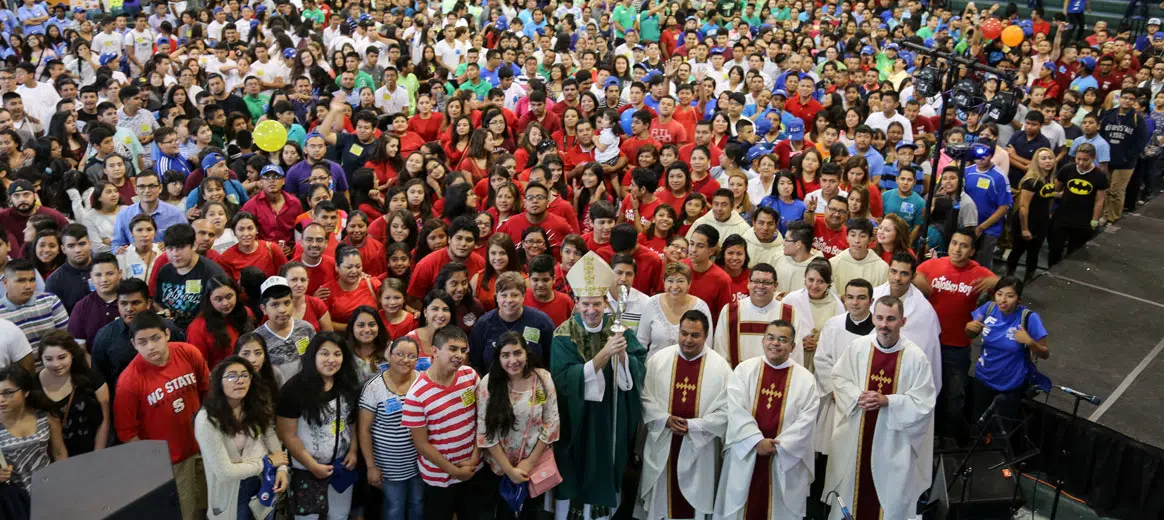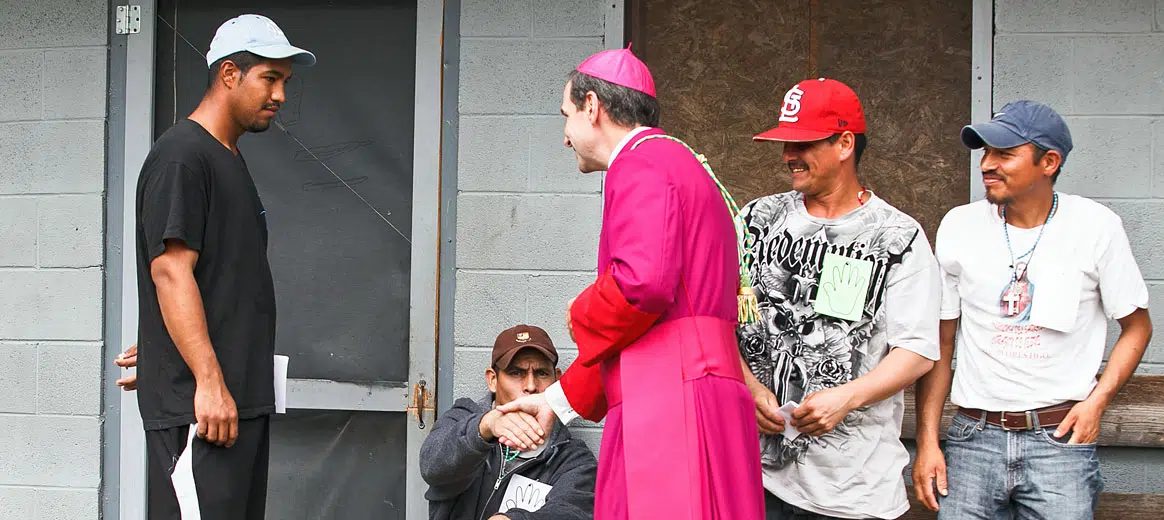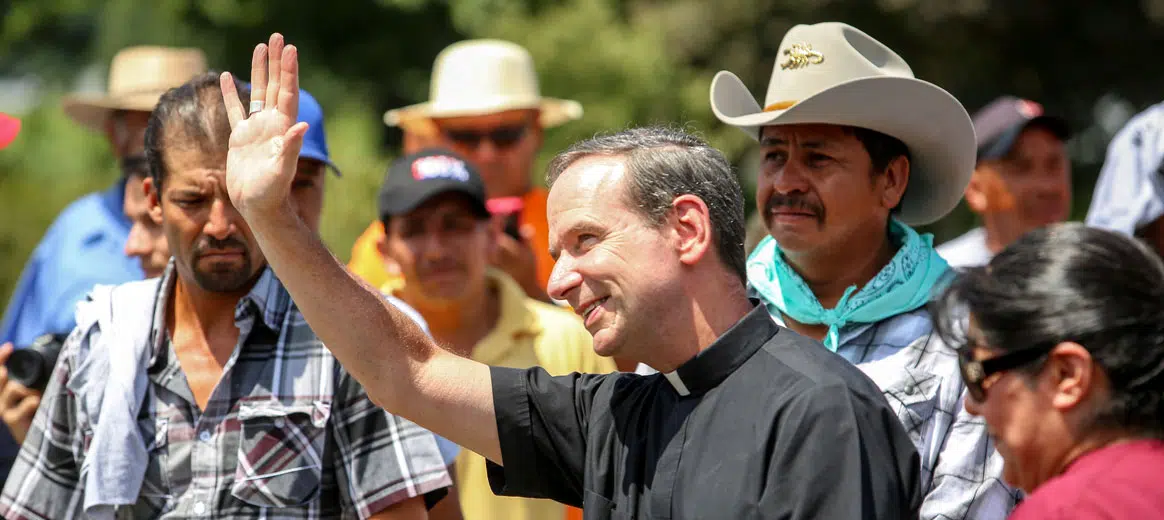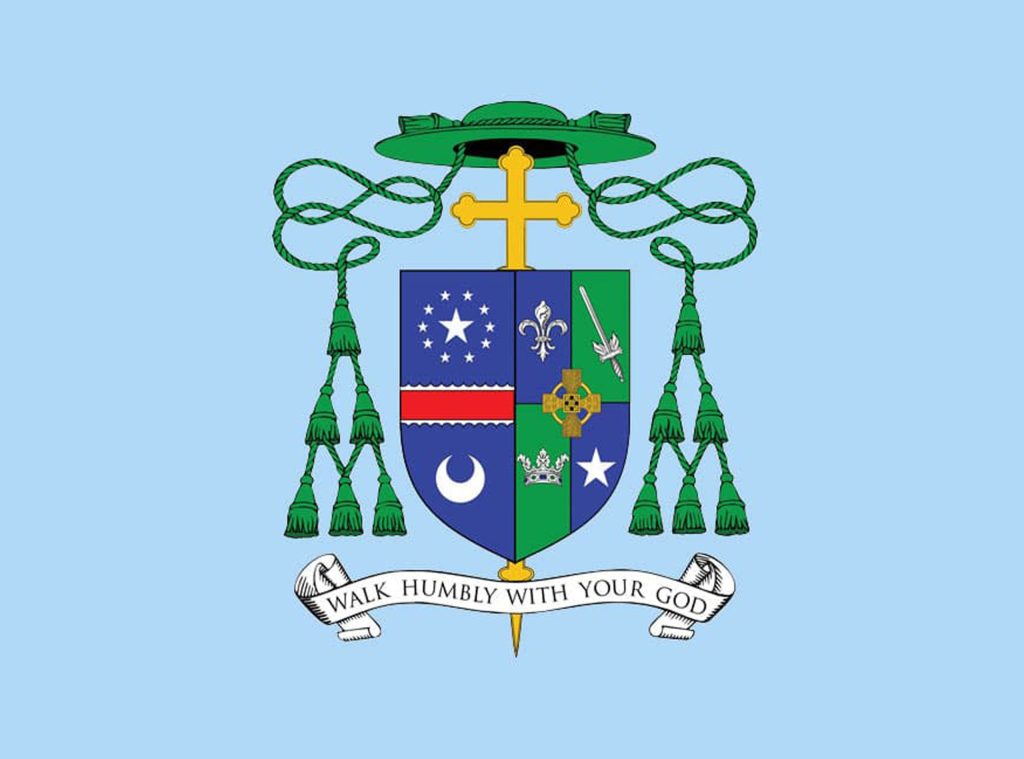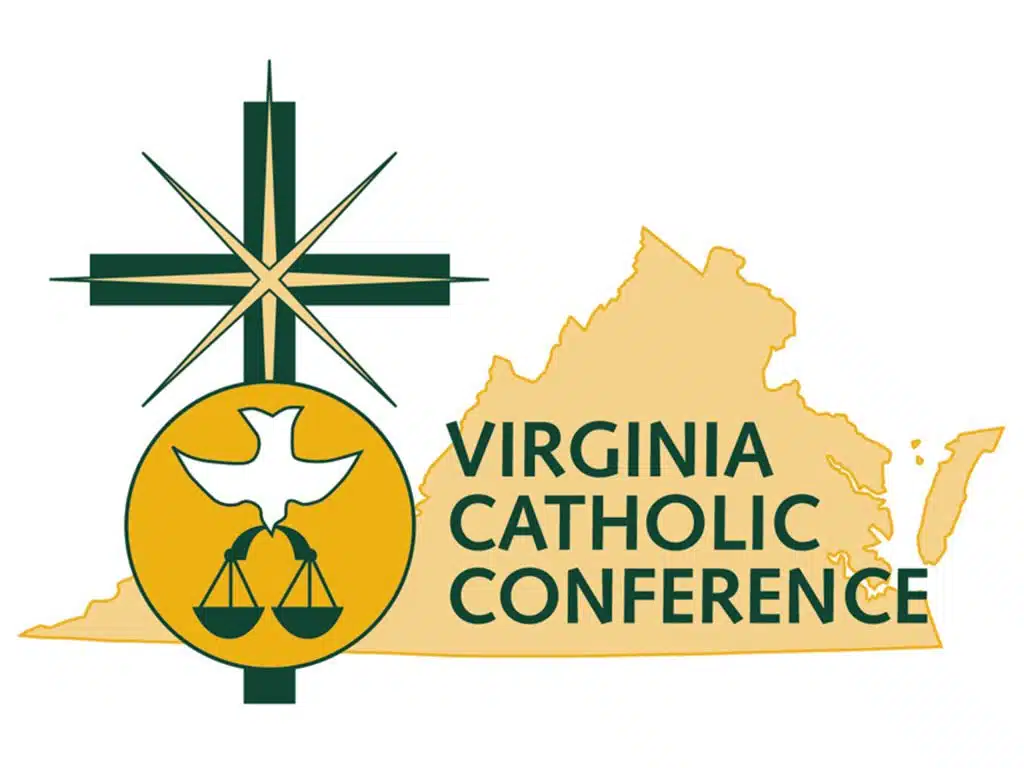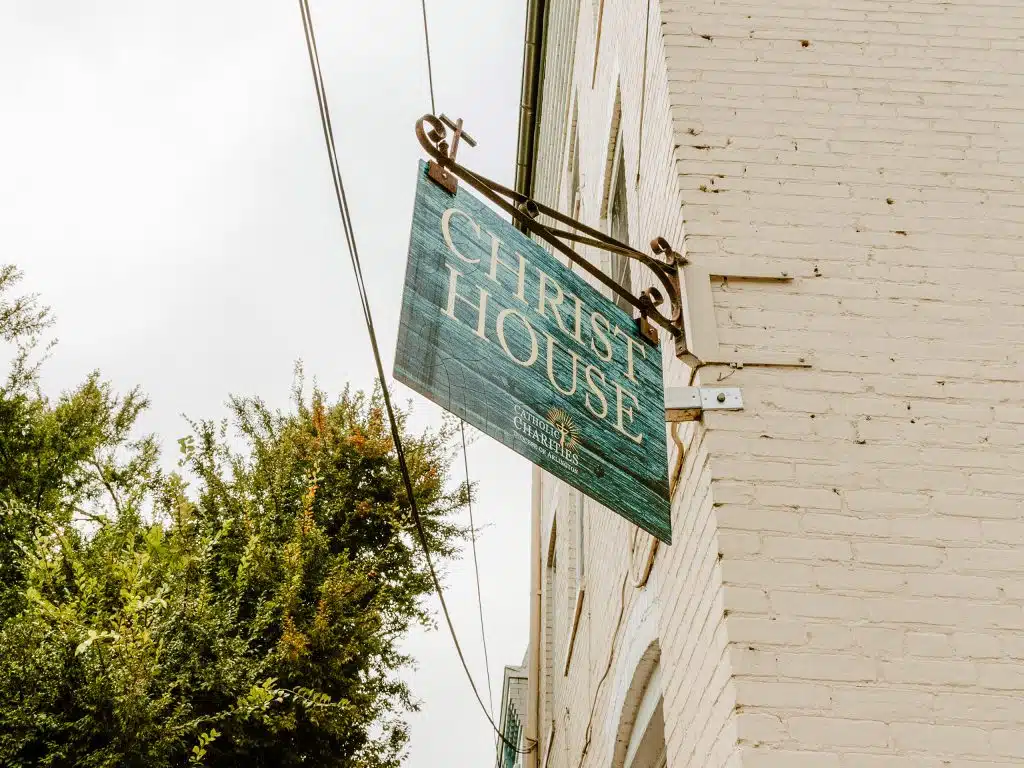When Teresa Matos, Hispanic coordinator at St. James Church in Falls Church, heard that Bishop Michael F. Burbidge’s wanted to visit with the parish’s Hispanic Legion of Mary Oct. 4, it came as a complete surprise.
“You’re telling me that the new bishop wants to pray with us?” said Matos. “That is quite an honor.”
Not knowing the time of the bishop’s arrival, the legionaries began praying a rosary in anticipation. When he came, “he showed up with a smile,” said Matos. “He reminded me of Pope Francis.”
Bishop Burbidge apologized for interrupting their rosary and asked to be included in their prayers. He then sat and prayed with them.
His visit was the talk of the community that week and has bolstered expectations of what his role might be to Hispanics. It will not be his first collaboration with Hispanic ministries; that came 10 years ago when he arrived in Raleigh, N.C.
“I did not know the language. I did not know the culture,” said Bishop Burbidge. “Thank God the beautiful people, (the) faithful people, especially in our Hispanic ministry, were extremely patient with me.”
There are 222,671 registered Catholics and more than 200,000 unregistered Hispanics living in the Raleigh Diocese. Since Bishop Burbidge’s installation in 2006 as the bishop of Raleigh, he has made strides to support Hispanics, beginning with speaking Spanish.
“He’s really made an effort to practice his fluency,” said Aimee Viana, senior executive director of the Secretariat for Lay Formation, Marriage and Family Life of the Raleigh Diocese.
“I had to get a tutor,” said Bishop Burbidge.
His one-on-one sessions have helped him celebrate Mass in Spanish, though he admits he still makes mistakes. “I always say to our seminarians, ‘You have to learn it now.’ It’s too hard to start learning a new language when you’re 45.”
When he arrived in Raleigh, many Hispanic groups and programs had been created, but were not a part of diocese. The bishop unified them with the Raleigh Diocese and has supported their work, while recognizing their heritages and cultural traditions.
“Bishop Burbidge’s teachings (and) words of encouragement (have helped me) live out my faith by expressing it according to my Hispanic heritage,” said Deacon Luis Royo, director of Hispanic Ministries of the Catholic Community of St. Thomas More in Chapel Hill, N.C.
Under Bishop Burbidge’s care, he has nurtured family ministries such as “Pastoral Familiar,” providing marriage prep classes and courses on natural family planning. He also established ministries such as the Hispanic Youth Ministry and the Secretariat for Lay Formation, Marriage and Family.
“We were really able to further our reach to the Hispanic youths,” said Viana.
An all-day event, “Encuentro Juvenil,” drew nearly 1,000 youths to play games, meet other teens, go to confession and attend Mass celebrated by the bishop.
Numerous migrant workers labor in the Raleigh Diocese, and because their work and rural locations prevent them from receiving spiritual and basic needs, Bishop Burbidge created the “Catholic Encounter of Farm Workers.” Three hundred migrant workers attended this summer to participate in the Mass, receive medical check-ups, haircuts, and clothes, as well as play soccer and eat.
Looking forward to his time in Arlington, he said, “I’m sure that the pastoral and spiritual needs of the Hispanic community in Arlington may be different than what I experience in Raleigh. So the first thing is to be present, to be visible and to listen.”
